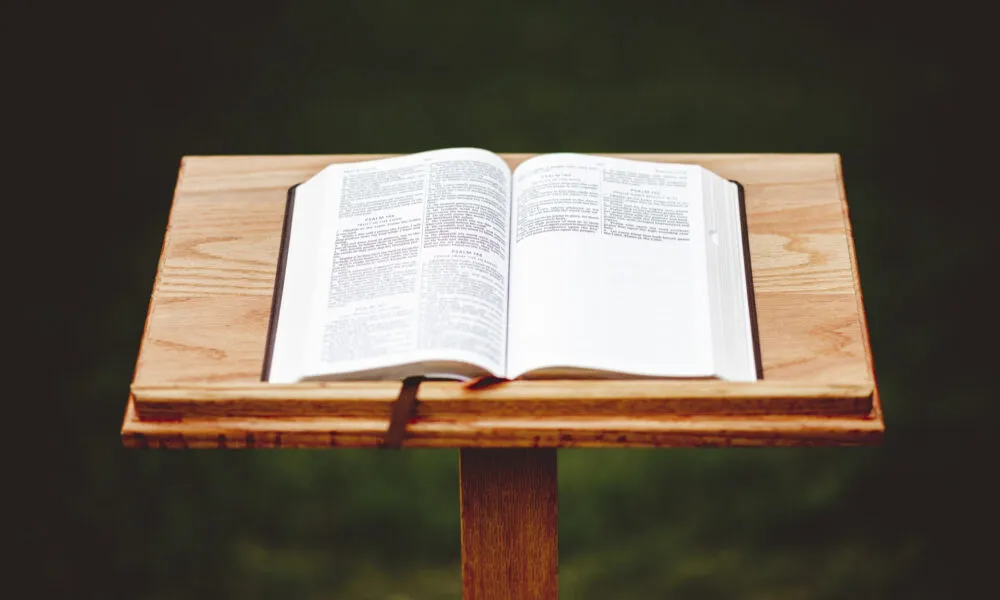Table of Contents
Introduction
Welcome to our Book of Psalms Summary!
If you’ve ever picked up a Bible, chances are you’ve encountered this remarkable collection of poetry, prayers, and songs.
The Book of Psalms is a timeless treasure trove of human emotions and spiritual reflections, touching on every aspect of the human experience.
Whether you’re a seasoned scholar or new to the world of biblical literature, we invite you to join us as we delve into the beauty and wisdom contained within the pages of this ancient text. Let’s embark on a fascinating exploration of the Book of Psalms and uncover the timeless truths it has to offer.
Who Wrote the Book of Psalms?
The Book of Psalms was written by many different people over a long period of time. Some of these writers were King David, who was a famous king of Israel, and other musicians and poets.
They wrote these Psalms to express their feelings, hopes, fears, and praises to God.
So, the Book of Psalms is like a collection of songs and poems written by various people who wanted to share their experiences and emotions with God.
Context and Background of the Book of Psalms
The Book of Psalms is like a special songbook in the Bible.
It’s filled with poems and prayers that people have used for a really long time, talking about their feelings and experiences with God.
These Psalms were written by different people over many, many years, starting about 3,000 years ago.
They cover lots of different things like saying thank you to God, asking for help, or just expressing feelings like sadness or joy.
One of the main writers was King David, who lived a long time ago and was a very important person in ancient Israel.
He wrote many of these Psalms during different times of his life, like when he was happy or when he was going through tough times.
The Psalms were originally written in a language called Hebrew, which was spoken by the people of ancient Israel.
They were often sung or read during religious ceremonies and times of worship.
Even though they were written so long ago, the Psalms still have a big impact on people today.
They help us feel connected to those who wrote them and remind us that our feelings and experiences with God are important.
Main Theme and Purpose of the Book of Psalms
The main theme of the Book of Psalms is talking to God and expressing all kinds of feelings. It’s like a big collection of songs and prayers that people used to connect with God in ancient times.
Each Psalm has its own purpose. Some are about saying thank you to God, some ask for help when things are tough, and others express feelings like happiness, sadness, or fear.
The purpose of the Psalms is to show that it’s okay to talk to God about anything and everything. They help people feel closer to God by sharing their joys, sorrows, and worries.
Even today, the Psalms are still used in prayers and worship because they help us express our feelings and connect with God in a personal way.
So, the main purpose of the Book of Psalms is to help people communicate with God and find comfort and strength in their faith.
Unlocking Wisdom: Book of Judges Summary Revealed | Engage with Biblical Insights Today
What Can We Learn from the Book of Psalms?
From the Book of Psalms, we can learn many things that help us in our lives.
First, we learn that it’s okay to talk to God about everything, whether we’re happy, sad, scared, or thankful.
The Psalms show us that God listens to us no matter what we’re feeling.
We also learn that it’s important to praise and thank God, even when things are hard. The Psalms teach us to be grateful for the good things in our lives and to trust that God is always with us, even during tough times.
Another thing we learn is that God is loving and caring.
Many Psalms talk about how God helps and protects people who trust in Him. This reminds us to have faith and to rely on God’s strength and guidance.
Overall, the Book of Psalms teaches us about the importance of prayer, trust, gratitude, and faith in our relationship with God.
It shows us that God is always there for us and that we can find comfort, hope, and strength in Him.
Our Favorite Verses from Book of Psalms
Here are some verses from the Book of Psalms that many people love because they offer comfort, encouragement, and hope:
“The Lord is my shepherd; I shall not want.” – Psalm 23:1
This verse reminds us that God takes care of us like a shepherd takes care of his sheep. We don’t need to worry because God provides everything we need.
“Trust in the Lord with all your heart, and do not lean on your own understanding.” – Psalm 3:5
This verse encourages us to trust God completely, even when we don’t understand what’s happening. It reminds us that God knows what’s best for us, and we can rely on Him.
“The Lord is near to the brokenhearted and saves the crushed in spirit.” – Psalm 34:18
This verse comforts us when we’re feeling sad or hurt. It reminds us that God is close to us, especially when we’re going through tough times, and He can heal our hearts.
“Be still, and know that I am God.” – Psalm 46:10
This verse encourages us to take a moment to be quiet and remember that God is in control. It reminds us to trust Him and find peace in His presence.
“Give thanks to the Lord, for he is good; his love endures forever.” – Psalm 106:1
This verse reminds us to be grateful for God’s love and goodness. No matter what happens, His love never changes, and we can always thank Him for that.
These are just a few of the many beautiful verses in the Book of Psalms that people love to read and find comfort in.
FAQ’s on Book of Psalms Summary
1. Why is the book of Psalms so important?
The Book of Psalms holds immense significance due to its rich spiritual and emotional depth.
Comprising songs and prayers, it serves as a universal guide for human expression, reflecting a wide range of human experiences—joy, sorrow, praise, lament, and gratitude.
Its timeless themes resonate across cultures and generations, providing solace, inspiration, and guidance for individuals in various circumstances.
It’s an integral part of religious worship in Judaism and Christianity, offering believers a means to connect with God through poetic language and heartfelt devotion.
2. What are the 5 sections of the book of Psalms?
1. Book 1 (Psalms 1-41)
2. Book 2 (Psalms 42-72)
3. Book 3 (Psalms 73-89)
4. Book 4 (Psalms 90-106)
5. Book 5 (Psalms 107-150)
3. Why did David write the book of Psalms?
David wrote the Psalms to express his personal relationship with God, sharing his joys, sorrows, praises, and petitions.
They served as hymns sung by the people to praise God and commemorate important events in the nation’s history.
David’s Psalms encapsulate the breadth of human emotions while emphasizing faith and trust in God amidst life’s challenges.
4. What is David’s most famous psalm?
David’s most famous psalm is arguably Psalm 23, often referred to as the “Shepherd’s Psalm.”
It is renowned for its beautiful imagery and profound comfort it provides to believers.
In this psalm, David poetically describes God as a caring shepherd who provides, protects, and guides His people through life’s trials and tribulations.
5. How to study the book of Psalms?
1. Read regularly.
2. Understand historical and cultural context.
3. Identify recurring themes.
4. Use study tools like commentaries and study Bibles.
5. Reflect personally on the Psalms.
6. Pray through the Psalms.
7. Apply lessons to life.
8. Engage creatively.
9. Discuss with others in a community setting.
6. Why is Psalm 23 so special?
Psalm 23 holds a special place for its universal appeal, beautiful imagery of God as a caring shepherd, and personal connection it offers.
Its enduring popularity stems from its reassurance in God’s presence during all of life’s seasons, making it a cherished favorite for worship, prayer, and meditation across cultures and generations.


